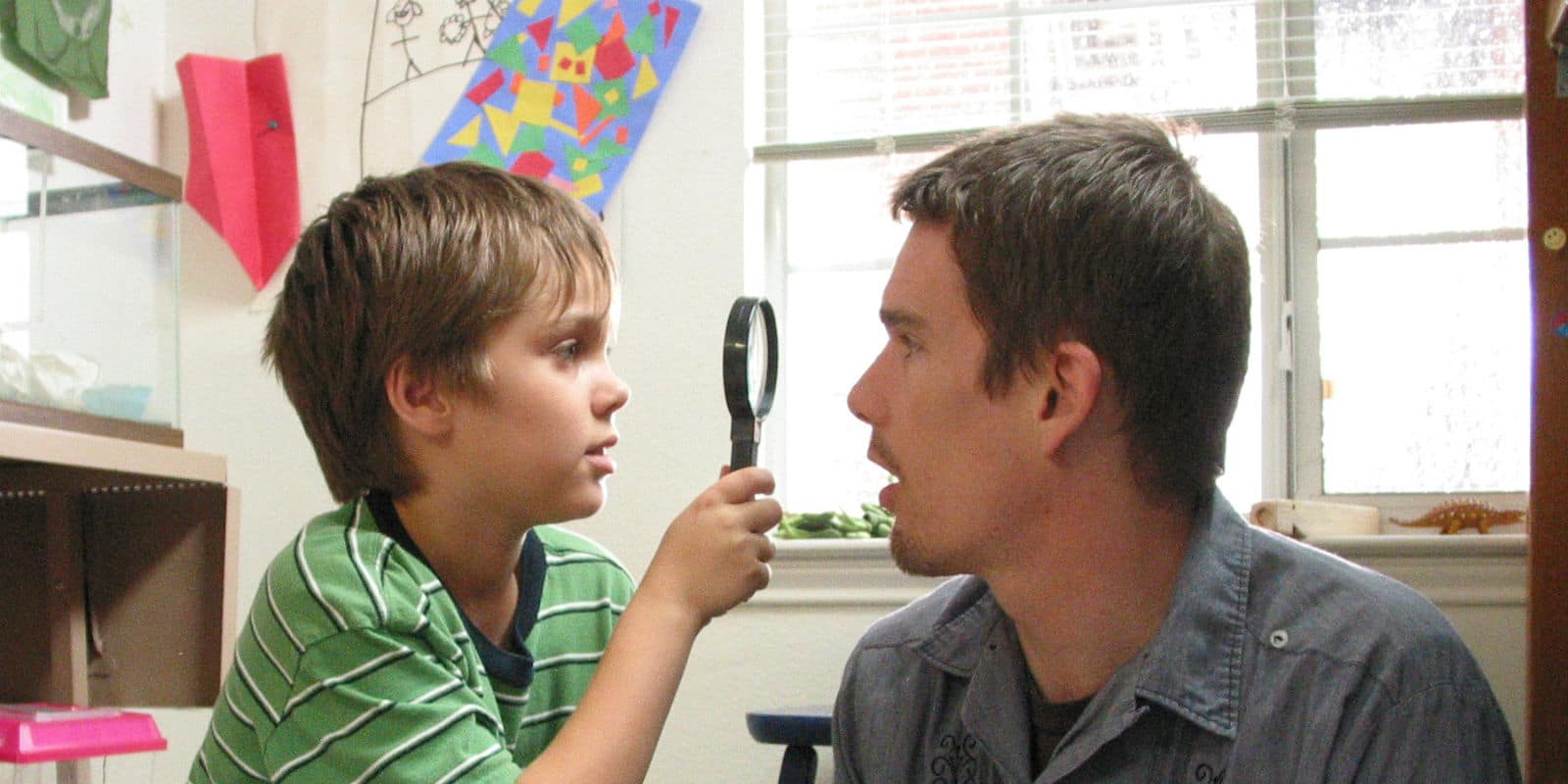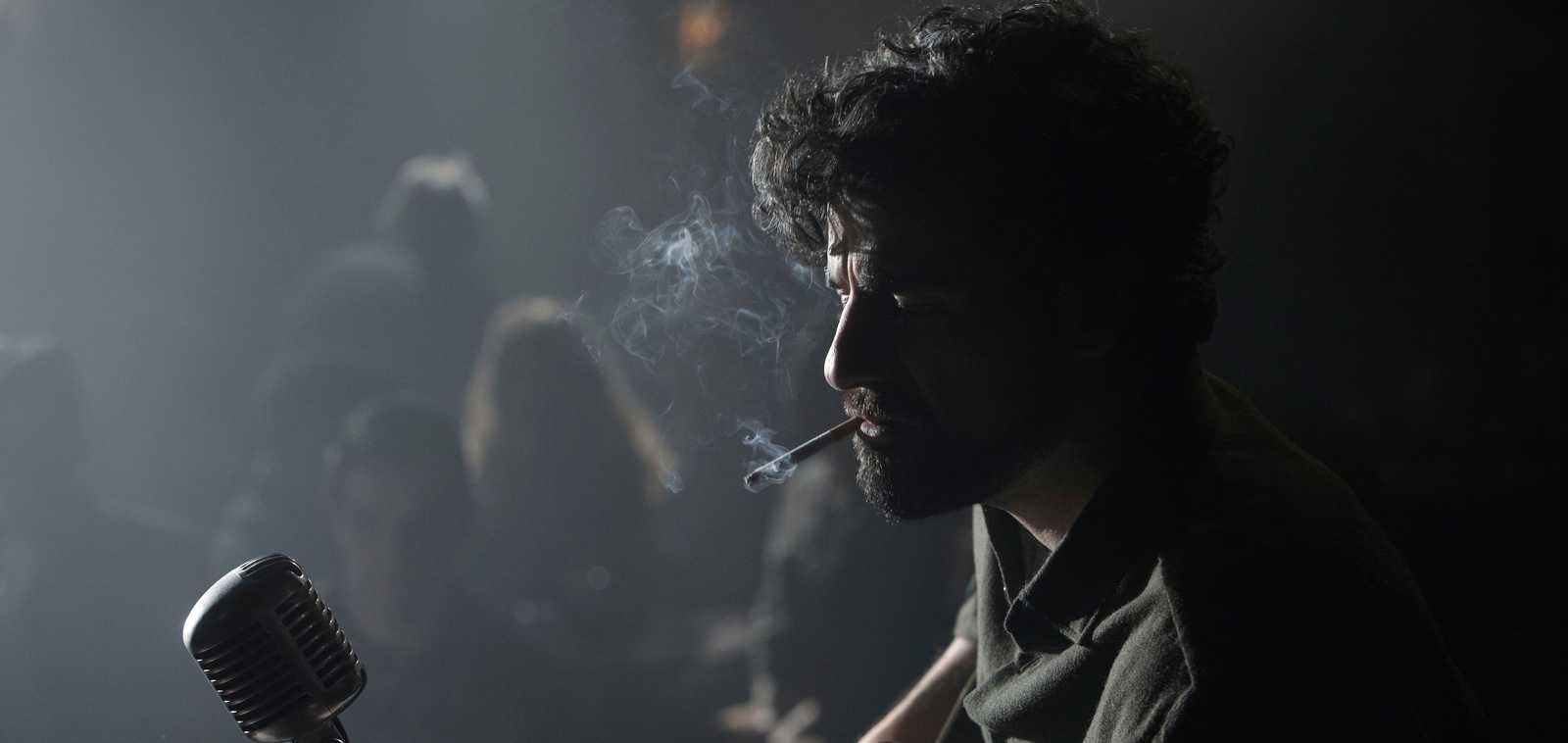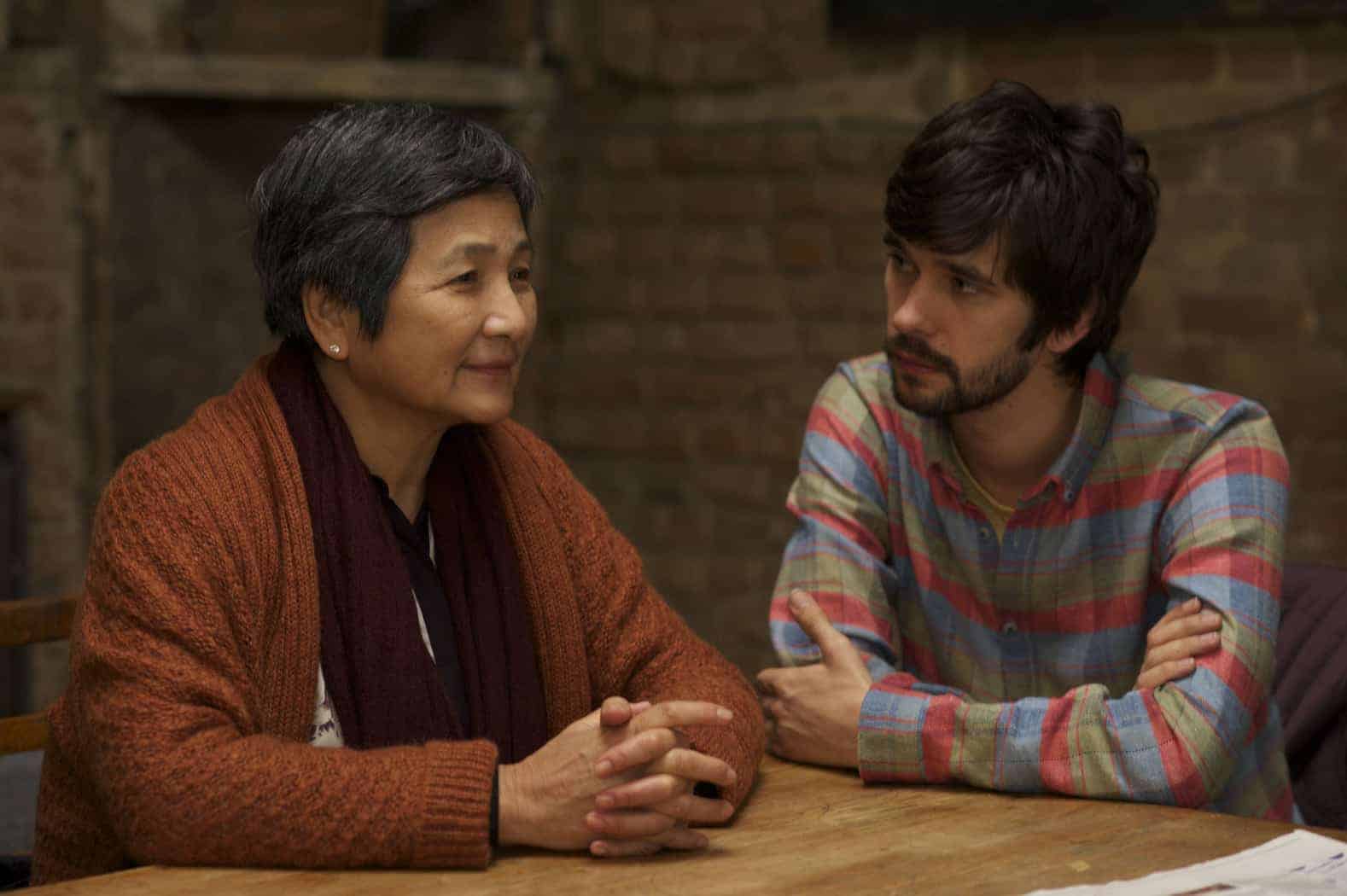
By far the best film I saw at Sundance this year was “Boyhood”, the second consecutive masterpiece from writer-director Richard Linklater (“Before Midnight”). Shot in 3-4 day periods over twelve years, it captures the growth of Mason (Ellar Coltrane), from boy to teenager to young adult, in real time. Although the title suggests this is a film largely about Mason’s coming-of-age – he is the film’s anchor – the maturation of his older sister Samantha (Lorelei Linklater) and his parents provide the context. The film lasts what feels like a short 160 minutes, but spans a lifetime, and by the time it’s over, Mason has grown into a young man starting university. Watching that journey, checking in along the way at what may seem like small and insignificant moments, has a profound cumulative impact.
The film opens with Coldplay’s “Yellow”, effortlessly transporting us back to 2000 when Mason was six years old, a quiet but intelligent boy, the product of divorced parents in small town Texas. It’s a surprisingly emotional start in part because, as an audience, we have our own memories associated with that song and time period, already cloaked in nostalgia. But since the film actually started shooting back then and was edited as it was shot, it actually feels like we’re back in 2000 with Mason. The details of his situation slowly come into focus: his mother (Patricia Arquette) plans to move the family to Houston where she can go back to university to get a degree and a better job to provide for her family; his sister is a boastful but charming straight A student; and his father, Mason Sr (Ethan Hawke ) has just returned from a year spent in Alaska and trying to make up for lost time.
We check in on Mason each year, as the phones, iPods, video games and political leaders change. Weekends spent with his father start by involving sleeping on the couch in his father’s shared apartment, and later turn into learning how to hunt in the country with his father’s new in-laws. We see the moments of joy in the family, singing songs around a campfire, the banter between Mason and his mother, and Mason undramatically experimenting with drugs and alcohol. We see Mason in casual conversations with friends and girls, which work as signposts for his self-confidence and increased ability to connect with people, even though he grows into an artsy outsider in high school.
Mason’s mother marries what Mason will later refer to as a “parade of drunken assholes”. We see how these difficult father figures change Mason: he’s sensitive but with an increasingly thicker skin, his bullshit detector improves, and he learns to adapt to new people. This makes him affable if introverted, and a magnet for girls; by the time he’s a teenager, we see him going through an accurate, absorbing, and surprisingly mature first love. We watch Mason noticing his mother noticing a new man, and watch the recognition that this could change his life register on his face. We see seemingly minor lapses in judgment from these father figures, and it’s often a series of offhand comments that will augur a deeper problem.
Things improve for Mason both because he grows up and because those around him do. His father settles into adulthood with a wife, a new baby, and a minivan, finally becoming someone responsible that Mason can better rely on. His mother finally gets the teaching job she wanted in a new small town, and her confidence fuels his, so that even when she marries the last drunken husband, she is less helpless to deal with him, the fallout less scarring. And the bond between mother and children grows ever stronger the more they go through together.
Linklater shot the film on 35mm to ensure it had a consistent look across the twelve years of filming, and it’s remarkable how cohesive it is, with a clear and singular vision. Although a full script had been written before the project started shooting, Linklater would alter and adapt it each year in collaboration with the actors, checking in on where they were in their own lives. As the years progressed, Ellar Coltrane grew into a stronger collaborator and actor, just as Linklater grew into a more seasoned filmmaker; the film gets stronger and deeper as it goes on. Yet even the early scenes never seem clumsy or inconsistent.
This twelve year project is an incredibly original feat; its closest predecessor may be Michael Apted’s “Up” documentary series, but that picked up every seven years with the same set of children, devoid of the context of the people around them who shaped them. By the time Mason emerges as an adult, so, too, do his parents and his sister, and the lingering feeling that things will only continue to get better for Mason is not just because he survived childhood, but because the rest of his family is stronger, too, from the last twelve years.

